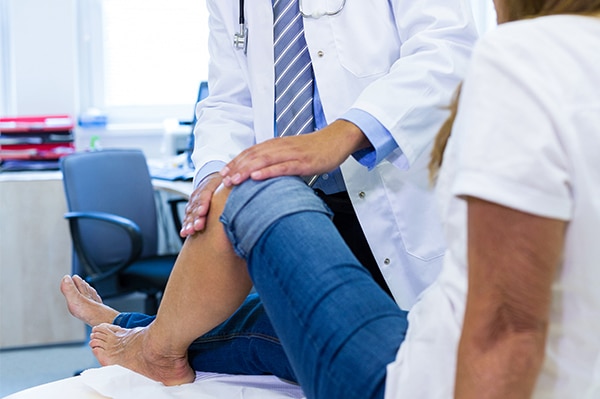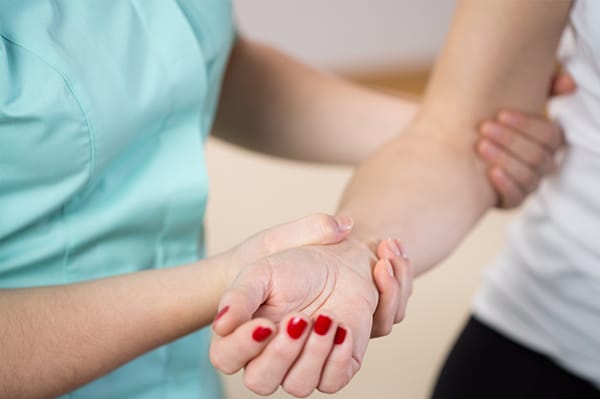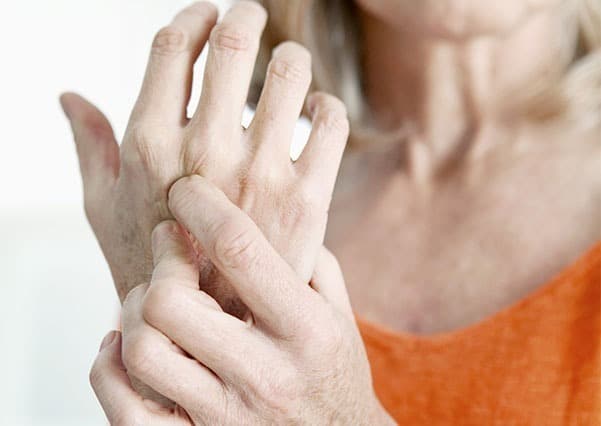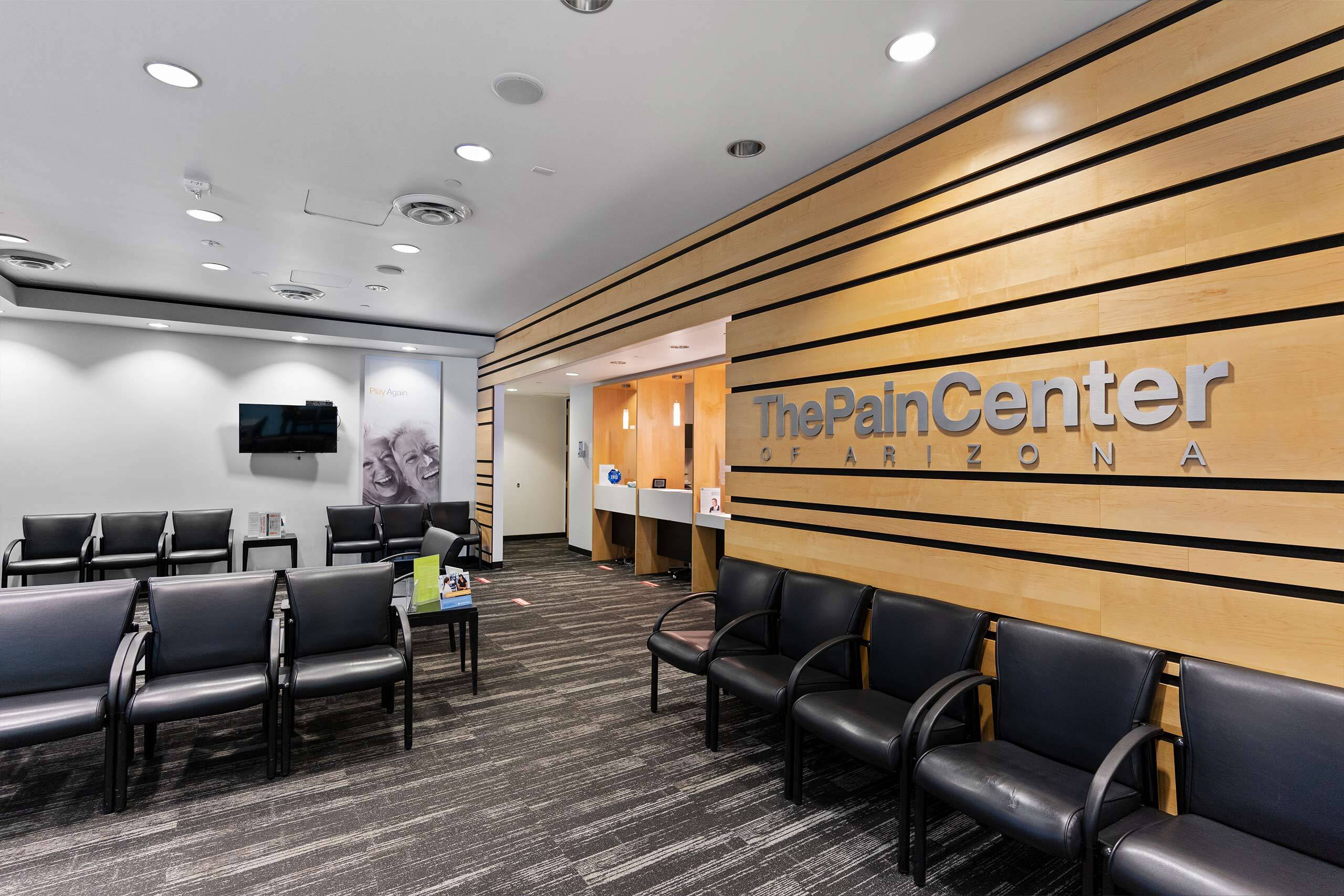Joint Pain Relief
Looking for joint pain relief? Joint pain is common among adults and can include aches and soreness in areas where your bones meet. Pain in the joints occurs when damage (injury) or disease affects the connections between bones. Tissues of the joint that cause pain include cartilage, bone, ligaments, muscles and tendons.
A number of common conditions are associated with joint pain, such as arthritis (inflammation or pain in the joint itself), infection, diseases and injuries to the joint area. Your knees, shoulders, and hips are among the most common body areas to be affected by joint issues. Older adults suffer from joint pain more frequently than younger people.
Virtually any joint in the body can be affected by pain. Levels of discomfort vary from mild and short-term (acute) to debilitating and chronic. Joint pain has the potential to negatively affect a person’s quality of life. A patient may experience pain in one or more joints of the body. Fortunately, there are many treatment options to manage joint pain.
What are the best treatments for joint pain? Depending on the cause of your pain, joint pain treatment options may include:
- Medications such as NSAIDs (aspirin or ibuprofen)
- Muscle relaxants and other prescription medications
- Topical agents (creams)
- Injections such as steroid medications, synthetic joint fluids and/or removing excess fluid from the joint
- Physical therapy (can include exercises, losing weight, heat and cold therapy, electrical nerve stimulation, improvements in posture)
- Alternative treatments including supplements, acupuncture, chiropractic adjustments and/or yoga
The first step in treating your joint pain is to get an accurate diagnosis of the cause of your symptoms. Based on your diagnosis, you and your doctor can determine your best treatment options.
At The Pain Center, we can help diagnose your pain, and we offer a range of therapies to treat your pain. Our goal is to get you back to your normal activities. Contact us to meet with one of our joint pain specialists.

Causes of Joint Pain
What causes joint pain and how can you find pain relief? The answer depends on the underlying cause of your pain.
Some conditions that cause joint pain include:
- Osteoarthritis
- Infections
- Fibromyalgia
- Gout
- Hypothyroidism
- Dislocation, broken bone, strains, sprains, or other injury or trauma
- Lupus or other autoimmune disorders (e.g. rheumatoid arthritis)
- Diseases such as Lyme disease
- Bursitis
- Some sexually transmitted diseases such as chlamydia and gonorrhea
Diet, use of alcohol, dehydration and taking certain medications can worsen joint pain or trigger an attack of gout. Being overweight can also contribute to joint pain due to the extra stress on the affected joints.

Joint Pain Symptoms and Diagnosis
As with all pain issues, be sure to discuss all your symptoms with your doctor. It is particularly important to see your doctor if your joint pain is accompanied with swelling, redness or warmth around the joint. It is more urgent to see your doctor if you see any joint deformity, cannot use your joint, or are experiencing a sudden or intense pain with or without swelling.
Symptoms of joint pain can include:
- Joint pain, stiffness and weakness
- Redness, tenderness and swelling of the joint
- Reduced range of motion in the affected joint
- Change in how you walk or move due to pain (limping)
- Locking up of the joint
- Muscle cramps
To diagnose the cause of your pain, your doctor will ask you questions about your health and family history, and will do a physical examination. Other tests that can help diagnose the source of your pain include X-rays, MRI scan, CT scan and blood tests. It is important that your condition is properly diagnosed so that you can receive the most effective and appropriate treatment.

How to Treat Joint Pain
Your treatment options will depend on the underlying cause and severity of your pain. Many causes of joint pain resolve with minimal or no treatment, or respond well to basic home-care. Treatments for joint pain can range from simple lifestyle modifications and home care, to prescription medications, injections, physical therapy and other medical treatments.
Adequate hydration and dietary modifications can also help reduce joint pain. Exercise, weight loss in overweight patients, bandaging, rest of the affected joint(s) and chiropractic treatments can also be beneficial.
For mild joint pain relief, you may choose to start with home treatments, such as:
- Over-the-counter pain relievers
- Allowing your joint to rest by using it less whenever possible
- Applying cold packs to the joint
- Using heating pads or taking a warm bath or shower
- Use a brace or wrap to compress the joint and protect the joint area
- Elevation of the joint above heart-level
Over-the-counter aspirin, acetaminophen or ibuprofen can be effective for certain types of joint pain when taken according to instructions.
Some of the medical therapies we provide for joint pain at The Pain Center include:
Medication Management
Medication management involves the pain specialist prescribes and regulates the medication that you use to help control your joint pain. The pain management specialist will provide you with the knowledge you need to take your pain medications properly.
The Pain Center takes a conservative approach with medication management and we limit prescription medications to help avoid dependence and unwanted side effects.
Joint Injections
One option for treating joint pain is to inject dexamethasone, a steroid that helps reduce pain and inflammation. This can be very effective for arthritis, rheumatoid arthritis and osteoarthritis. Joint injections can also be used to remove extra fluid from joints affected by arthritis and other painful joint conditions.
Neuromodulation
Neuromodulation treatments use low-voltage electrical pulses to block the sensation of pain.

When Further Joint Pain Treatment is Required
Based on the underlying condition, further treatments may be required. If there is something that can be addressed by another type of specialist, we will refer you to the appropriate specialty doctor.
Commonly Asked Questions about Joint Pain
What usually causes joint injury?
According to the World Health Organization, joint injury is most frequently caused by falls, followed by car accidents and machinery/ tool use. In the elderly population, falls are the biggest risk.


Get the care you need within 24 hours*
We know when you’re looking for relief for your chronic pain, you can’t wait any longer than you already have. This is why we can schedule you with an appointment within 24 hours at most of our pain centers across the Valley, so you can start your journey to life-long pain relief as soon as tomorrow.



